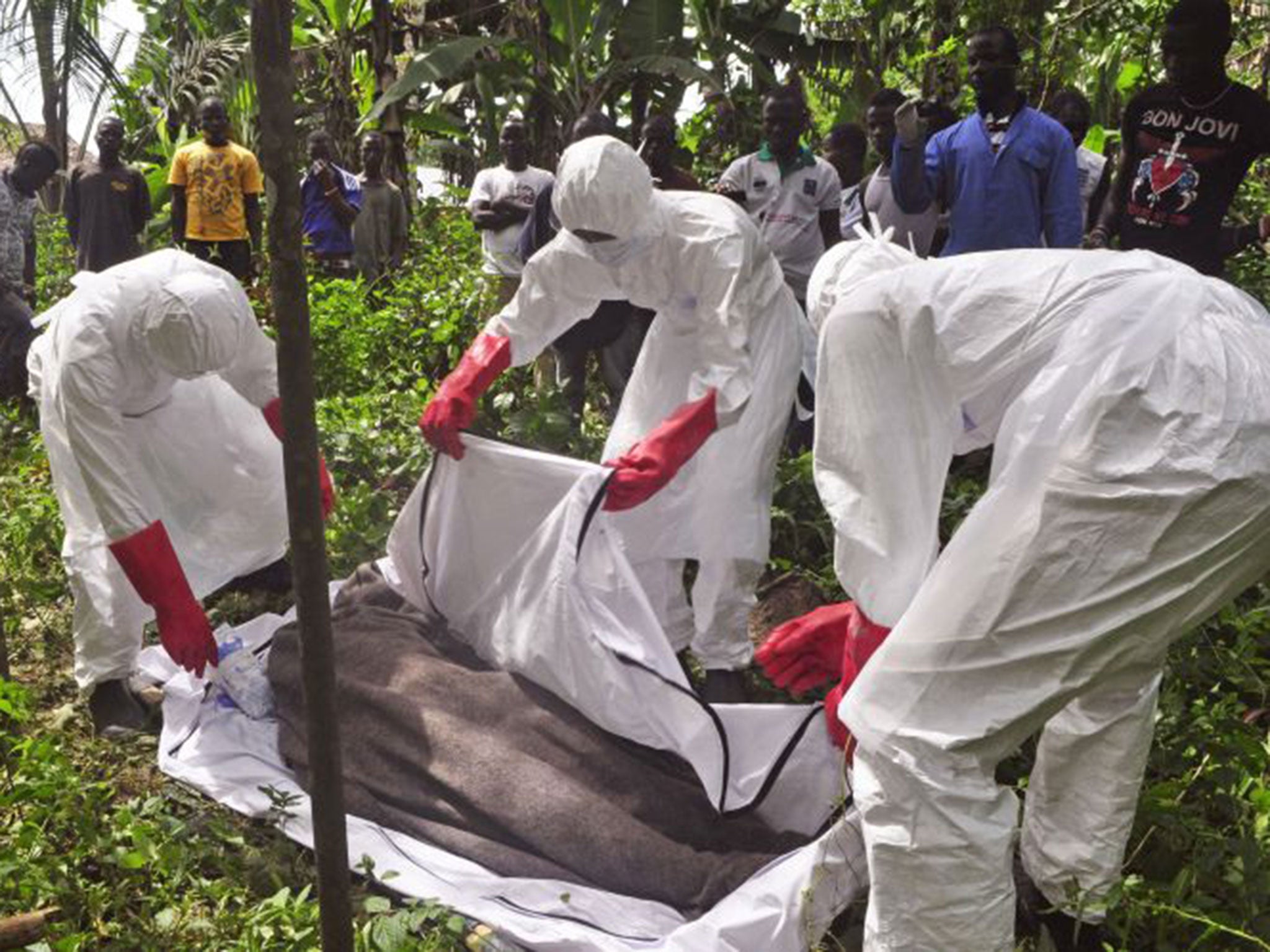Ebola outbreak: Fresh call for Nato to lead the fight against virus
Retired Army chief says UN is 'unlikely to be up to the job' of ending the epidemic in West Africa

Your support helps us to tell the story
From reproductive rights to climate change to Big Tech, The Independent is on the ground when the story is developing. Whether it's investigating the financials of Elon Musk's pro-Trump PAC or producing our latest documentary, 'The A Word', which shines a light on the American women fighting for reproductive rights, we know how important it is to parse out the facts from the messaging.
At such a critical moment in US history, we need reporters on the ground. Your donation allows us to keep sending journalists to speak to both sides of the story.
The Independent is trusted by Americans across the entire political spectrum. And unlike many other quality news outlets, we choose not to lock Americans out of our reporting and analysis with paywalls. We believe quality journalism should be available to everyone, paid for by those who can afford it.
Your support makes all the difference.The United Nations is "most unlikely to be up to the job" of ending the Ebola epidemic and should "let Nato do it for them", the former chief of Britain's armed forces has said.
General Sir David Richards said that he was "strongly supportive" of a proposal for Nato to take command of the international response to West Africa's Ebola outbreak, adding that the crisis demanded "a grand strategic response".
A group of leading political, military and diplomatic figures wrote to Nato's Secretary General, Jens Stoltenberg, last week urging him to commit the military alliance's "unique capabilities" to the fight against the disease, which has killed nearly 5,000 people in Liberia, Sierra Leone and Guinea.
So far, the international response has been spearheaded by aid organisations such as Médecins Sans Frontières, which have been stretched beyond their limited capacity.
The US and the UK have now sent military personnel to support the effort, but there are still concerns that the huge logistical operation required to set up treatment centres, trace patient contacts, and guarantee safe burials in countries with poor infrastructure and where many flights have been cancelled, demands a broader response.
"What a crisis like this requires more than anything else is efficient organisation and leadership. It is quite clear that currently these vital ingredients are missing," said Sir David, who stood down as chief of the defence staff last year.
"The military's core skills are to analyse a problem, devise a plan ... and then to execute that plan under pressure. Individual nations, even the US, cannot and should not be expected to meet a problem of this scale and danger by themselves," he told The Independent on Sunday.
He said that the "challenging time-scale" meant the UN was unlikely to control the epidemic, and said it should let Nato take the lead.
The letter, coordinated by the London-based European Leadership Network, was signed by George Robertson and Jaap de Hoop Scheffer, both previous Nato secretary generals, along with two former UK foreign secretaries, David Owen and Douglas Hurd.
Britain's military capability in Sierra Leone was boosted last week by the arrival of the RFA Argus in the capital, Freetown.
The ship, which is equipped with a 100-bed hospital, has delivered vital supplies including three cargo helicopters, which will be used to bring help to remote parts of the country. So far, the UK has committed to sending 750 military personnel, including troops and medical personnel to the country.
In neighbouring Liberia, the US has taken the lead, with the Pentagon committing up to 4,000 troops.
Yesterday, Canada became the latest country to issue a visa ban on people coming from countries with widespread Ebola infections. A similar decision by Australia last week has met with criticism from the World Health Organisation, which has said that restrictions on movement will not help contain the virus and could hamper the international response.
Join our commenting forum
Join thought-provoking conversations, follow other Independent readers and see their replies
Comments